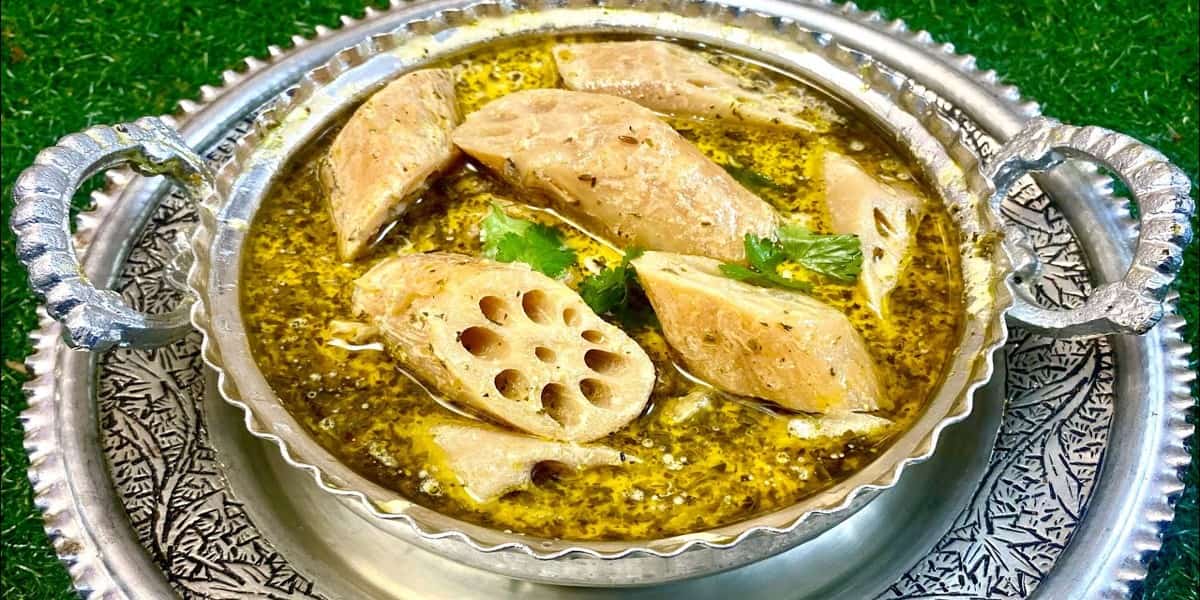Nandru
Doodlebrary
- Lotus stems, also referred to as Nandru or kamal kakdi, hold a significant place in Kashmiri cuisine.
- One cannot truly experience the essence of Kashmiri gastronomy without savoring the unique flavors of lotus stem, known locally as Nadru.
- The Nadru Yakhni Recipe is a quintessential Kashmiri preparation featuring lotus stems immersed in a tantalizing yogurt-based sauce.
- This dish showcases the versatility and culinary importance of lotus stem in the region.
- Lotus stems are cherished for their protein-rich composition and are cultivated amidst the picturesque lakes of Kashmir.
- These stems are porous and fibrous, once abundantly available and adaptable to various culinary creations.
- In Kashmiri cuisine, lotus stems are often used as a meat substitute in vegetarian dishes.
- From being incorporated into lentil-based dals to being transformed into crispy snacks, lotus stems are a culinary chameleon in Kashmiri kitchens.
- Beyond its culinary appeal, Nadru also boasts remarkable health benefits.
- It is a nutritional powerhouse, brimming with vitamin E, vitamin B, vitamin C, fiber, riboflavin, thiamine, copper, and manganese.
- One of the notable health benefits of lotus stems is their high fiber content, which aids in combating constipation—a condition that can adversely affect both physical and mental well-being.
- Additionally, Nadru is recognized for its role in regulating blood pressure and blood sugar levels.
- The presence of vitamin B complex and pyridoxine in lotus stems contributes to stress reduction, while their vasodilator properties improve blood circulation and support healthy blood pressure.
- Pyridoxine also plays a role in enhancing overall heart health.
- Moreover, due to its rich potassium content, lotus stems are effective in maintaining optimal blood pressure levels.
- This attribute makes them particularly beneficial for individuals with diabetes, as they help in stabilizing blood sugar levels.
- In Kashmir, lotus stem, known as Nadru, is not just a culinary delight but a cultural emblem.
- Its cultivation thrives in the region’s various lakes, with Dal Lake in Srinagar being a major hub for this cherished delicacy.
